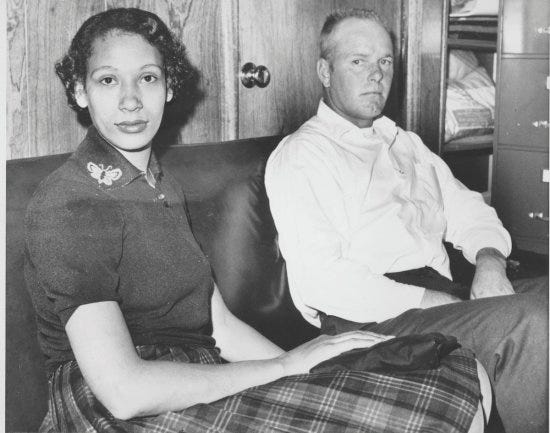Setting the Record Straight On The Case of Loving V. VirginiaPosted in Articles, History, Law, Media Archive, United States, Virginia on 2020-10-28 20:42Z by Steven |
Setting the Record Straight On The Case of Loving V. Virginia
Medium
2020-10-25
 Mildred and Richard Loving. Courtesy of Getty Image. |
The recent death of Bernard Cohen, one of the lawyers who represented the plaintiffs Richard and Mildred Loving in the landmark Supreme Court case Loving v. Virginia, which overturned proscriptions against interracial marriage in the United States in 1967, has once again thrust the case back into the headlines. In 1958, Richard Loving a “white” man, and Mildred Jeter a “colored” woman, violated several Virginia codes when they married in the District of Columbia, where interracial marriage was legal, and afterward returned to their home in Caroline Country, Virginia, where interracial marriage was illegal, to live as husband and wife. The couple was taken to jail, tried for the crime of being married, and then banished from Virginia for 25 years.
Fittingly, the 86 year old Cohen who this month of Parkinson’s Disease has been eulogized for cementing his place in American legal history at the young age of thirty-three when he and his co-counsel Philip Hirschkop rocked the Supreme Court with a two-pronged legal argument against state-imposed anti- interracial marriage laws which included a poignant direct quote from Richard Loving who told the attorneys, “Tell the court I love my life, and it is just unfair that I cannot live with her in Virginia.” The Court unanimously agreed.
Yet, in recounting the events which led up to the couple’s triumphant victory of love over hate, the storyline in these accounts follows the popular narrative of the Loving story. But there is more to this case than many have supposed. This article highlights a few unknown facts and debunks some myths about this historic case…
Read the entire article here.

